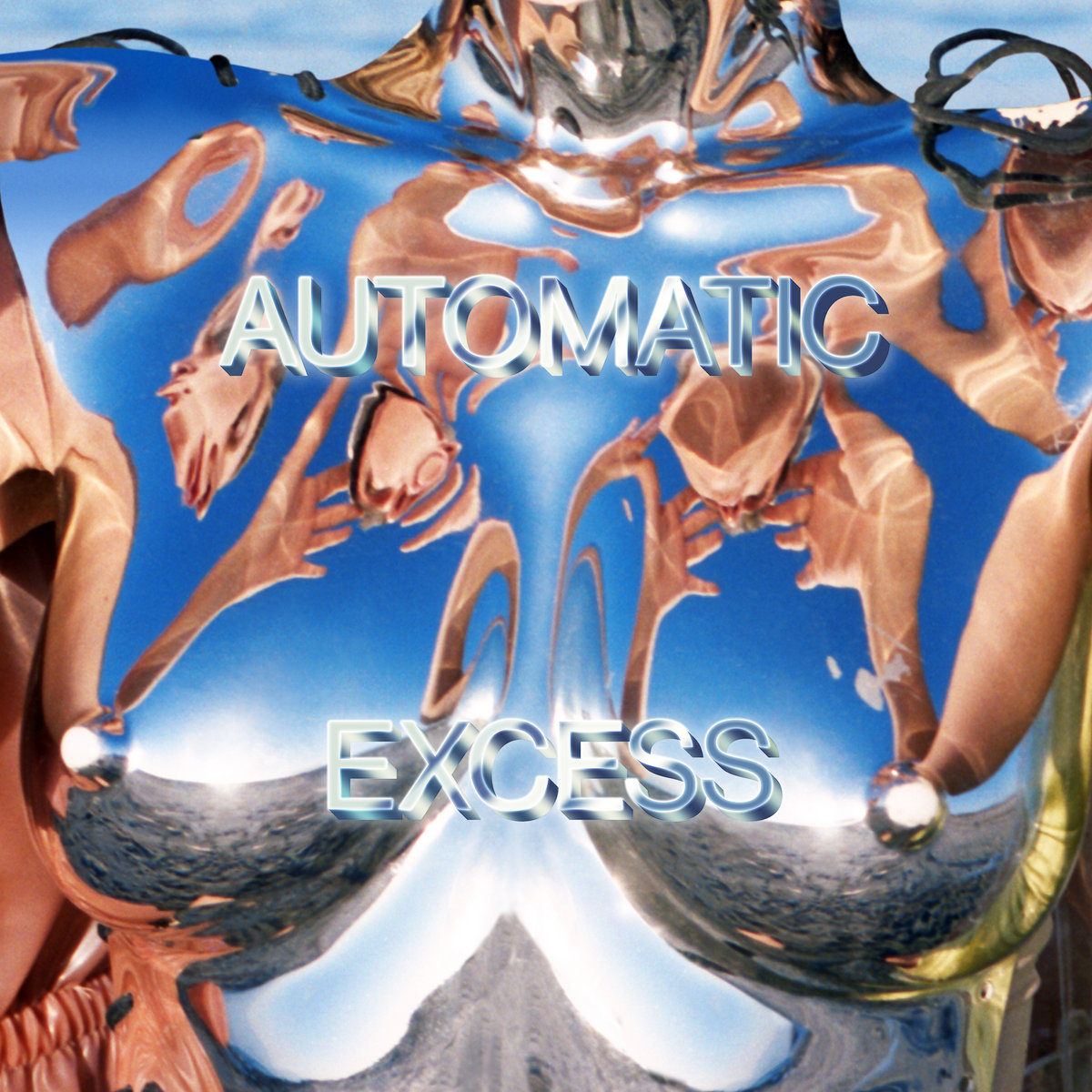Automatic
Excess
STONES THROW
What’s that Star Trek quote? Space—the final frontier, strange new worlds, to boldly go where no human has gone before, yadda yadda yadda. It’s hard to pinpoint when space travel became less of a bold and noble pursuit and more so one entwined with hedonism and chauvinism. With Trump’s Space Force? Before Bezos ejaculated himself past the Kármán Line? Space one-upmanship is a seemingly remote facet—or symptom—of our society’s greed and excess. Still, it’s emblematic of the inconsolable divergences between rich and poor, and humanity’s overall carelessness toward its home.
Automatic’s Excess, the LA trio’s second album, uses this as its blasting-off point. “Maybe there’s a new world out there / We can do it all again / In the service of desire / We will travel far away,” vocalist Izzy Glaudini speak-sings on the effusive lead single “New Beginning.” The Kubrick-inspired music video sees the band inhabiting a variegated spaceship—gardening, reading early 20th-century French erotica, and eating tray dinners. The lyrics satirize the reckless notion of a Planet B while Lola Dompé’s motorik drumming propels her bandmates skyward. It’s a perfect introduction to a group of ambitious artists and satirists on the cusp of take-off.
The color and playfulness of this first track is maintained throughout Excess, with the lyrical focus rarely diverting from modern-world injustices. The group decries the Kafkaesque corporate rat race—“the fading façade of a white-collar dream”—on the plodding “Skyscraper.” “Automaton” calls out life “under the rule of a crass manifesto” over a stifled krautrock groove. But it’s their climate-activist anthem “Teen Beat” that features the most explicit call for attention: “Turning around so you will face me,” they chant detachedly at everyone with their “feet in the water,” those refusing to consider the Earth’s future. The trusted Moog Subsequent 25 blips nervously in agreement.
Although Excess is concerned with, well, excess, its message is telegraphed with an ironically conservative palette. It’s an exercise in defiance, conservation, and a feat of minimalist-cum-maximalist songwriting. The band reshapes the aloof robotics of Kraftwerk and the auditory illusions of Melody’s Echo Chamber into their own unique voice, ending up with little more than the aforementioned Moog, an unrelenting drum beat, and a lolloping Peter Hook bassline. It’s all they need to transmit their manifesto. The result sounds robust and modern in the way that ’80s sci-fi flicks viewed the future—coltish, sleek, and with the garish silver hue mirrored on the album cover.
“Bigger than the future, better than the past” goes one line from “Venus Hour.” Both thematically and sonically, Excess explores the inevitable, perverse allure of futurism from the impermanent, deceptive safety of today. But its creators don’t succumb to—or even exist within—either world. For as long as they refuse both, we can keep pretending we’re on the edge of a brave new one.







